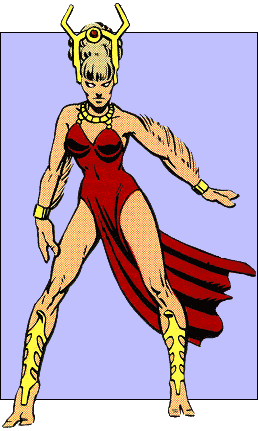What kind of man misogynist are you?
Right now the comics blogsphere is abuzz with criticisms of Wizard Magazine’s latest disaster: their How to Draw series. Well, perhaps not latest, as it seems that there have been complaints about this series for a while now.
Following a trail of links, I came across a 2005 post by LJ user Rat Creature. Which lead me to a link about the “Triple Threat” — which, contrary to what it sounds like, is not a wrestling move. The triple threat, of course, references the three ways (boobs, butt, legs) in red-blooded American guys objectify view women! The blurb that I will be tearing apart can be found here (JPG). For reference, the person writing it is Joseph Lisner, known for drawing Dawn.
I’ve actually split this analysis into three sections, the first of which will deal with the way that Lisner constructs American masculinity.
I. Introduction: Red-blooded American Masculinity
I’m somewhat surprised that Linser managed to pack in so many negative stereotypes about men into such a small space. I know I’ve said this before, but articles like these make me realize how stupid it is to call feminists man-haters — those who buy wholesale into the Western construction of masculinity do far more in the way of painting men negatively than feminists ever could. Anyway, let’s see what tropes he has brought out this time.
II. Men as Beasts
What about the opposite sex hits me like lightning and instantly shatters my self control?
This trope is used everywhere from journal articles about rape (the good old “boys will be boys” defense) to abstinence only education (“you gotta hold on to your virginity, girls, because those men are beasts who would take it without a second thought!”). One reason I think this one is used and abused by men is because it acts as a “get out of responsibility free” card — “I can’t be held accountable for my behaviour, Your Honor, after all I’m a man and she’s a woman!” kind of deal. Men lose their self control around women and become these sexual beasts who can only think of the woman sexually and, sometimes, will go to any length to get what they want.
But, really, what does that say about men? That y’all are, deep down inside, horrible people? That you have no more control over yourselves than a baby does over its bladder? Is this really a view of manhood that’s worth perpetuating?
III. Men as Buffoons
To any female artists out there reading this, if you’re looking for some cosmic insight the best I can say is “good luck.” Please don’t ask me about the feminine/masculine mystery… I’m just as lost as the next guy–I’m only following my nose.
This one is somewhat less insidious than the “Men as Beasts” trope, but is similarly used to abdicate responsibility for bad behaviour (see the Ellison incident). You can see this in other areas, too, such as domestic product commercials that feature men — you know those ones where the man is responsible for cleaning up, or cooking dinner, or whatever and he botches it so badly that you wonder how he got through life without accidently killing himself from sheer stupidity.
Though presented in a comical fashion, the underlying message here is that men are just large children. As I mentioned above, this can be played to men’s advantage in certain situations, but overall I’d say that most men recognize this stereotype as insulting. Too bad Lisner isn’t one of those men.
IV. Men as Simple
In America, men usually like to keep it simple and break down their preferences into three basic groups.
A variation of the “Men as Buffoons” trope, this one is about simplicity. Sometimes this is “men are simple minded” and sometimes it’s “men like things simple,” though in the above instance I’d argue it’s a bit of both. I’m not exactly sure what benefit this trope gives to men, but I’ve seen it used often in a way that presents men as wanting to avoid having to think, which implies that they don’t have high intelligence.
V. Men as Pigs
Yeah, yeah, yeah men are such pigs (smart men never argue this one).
Which brings us to the last stereotype that I could find in the article: men revel in their own misogyny. This one is, in some ways, a combination of the “Men as Beasts” and the “Men as Buffons” tropes. It has that “men are naturally beastly,” element of the former while throwing in that bit of “aren’t I a naughty little boy?” inherent in the latter to act as a deflection of any criticism that could be lobbed at them for misogynistic behaviour. In terms of negative stereotypes — well, the last time I checked, men don’t exactly like being labelled women haters, and even if this on the surface deflects such criticism, I just can’t see it as a good thing to pretend that men naturally hate women.
V. Conclusion
Lisner did not invent these constructs, but that he so naturally employs them in order to form a sort of “buddy-buddy” relationship with the (presumably male) reader is rather disturbing. The tropes that he employs are harmful to both women and men, and serve to reinforce this strange dichotomy where men are on the one hand portrayed as the rational, logical gender and on the other hand portrayed as beastly children who have no self control.
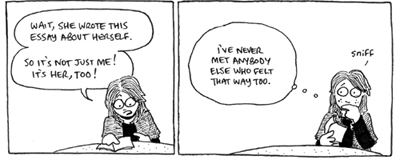
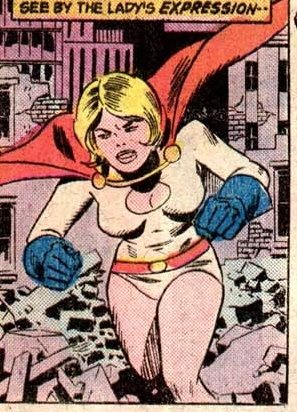
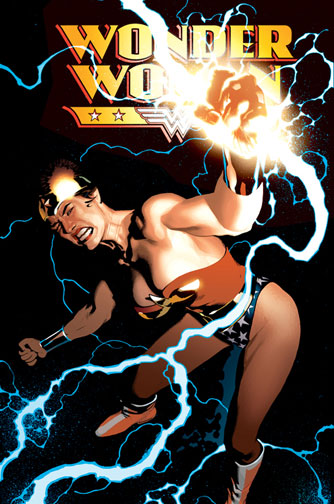

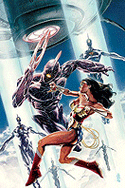
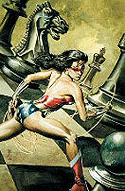
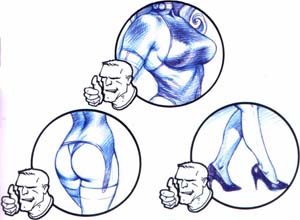
 (Two short posts involving comics, it must be procrastination weekend!)
(Two short posts involving comics, it must be procrastination weekend!)